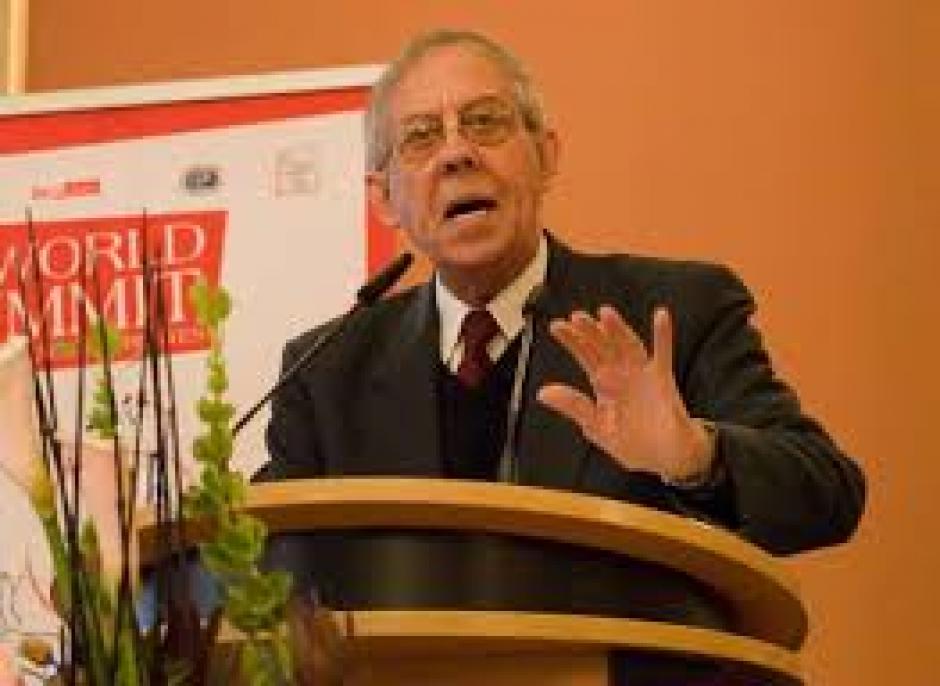
Every year, on September 21, the International Day of Peace is celebrated around the world. The United Nations General Assembly declared this date in 1981 as the day dedicated to strengthening the ideals of peace through 24-hour nonviolent observation and a planetary ceasefire.
However, under the pretext of achieving world peace, justice and the protection of collective freedoms, territories of other countries are invaded and occupied, and civil wars are orchestrated and encouraged. This is what is happening today in Yemen, Syria, Iraq, Southern Sudan, Somalia, Afghanistan. And in the words of the UN envoy for the Middle East, the possible annexation
of the West Bank to Israel "is a growing threat to peace in the region. The arms race is not stopping; on the contrary, huge sums of money - with which world hunger could be ended - are being used to produce increasingly sophisticated weapons capable of causing mass extermination in seconds. This technological development accelerates the pressure to create and escalate conflicts, promoting media warfare and nationalism, developing conditions of political tension and pressuring countries to update their preparation for a potential armed confrontation, which generates continuous increases in military expenditures and in the purchase and sale of arms, ammunition and other military items, thus strengthening the nefarious business of the arms industry.
The great concentration of power generated by globalization aggravates and increasingly restricts the possibility of achieving a world peace that includes all inhabitants without distinction of nationality, ethnicity, culture or creed. Although since December 24, 2014, the Arms Trade Treaty (ATT) became a norm of international law with the previous approval of the United Nations (UN) General Assembly. To date, the Treaty has not been ratified by three of the five permanent members of the UN Security Council - the United States, Russia and China - who are the five largest arms manufacturers and traders.
This Treaty established, for the first time, strong global rules to stop the flow of weapons, munitions and related items into countries when it is known that they will be used to commit or facilitate genocide, crimes against humanity, war crimes and gross violations of human rights. In addition, the ATT has been a first step in putting control standards on the arms industry, a very lucrative and profitable industry that is morally questionable with opaque and highly corrupting action. With the case of Yemen and its more than five years of abuses against the population, it has demonstrated that much more pressure from civil society and international public opinion is needed for its implementation.
It is estimated that approximately half a million people die each year with firearms, on the battlefield as a result of state repression and by criminal gangs. And for every person who dies in conflict and armed violence, there are many more who are injured and tortured, abused, forcibly disappeared, taken hostage, or denied their human rights through the barrel of a gun. In addition, consider the many millions of people around the world who die because they are denied access to health care, water, or food, as they are caught up in conflicts sustained by the poorly controlled flow of arms.
From its beginnings the International Humanist Party has echoed the feelings of the peoples who want to live in peace. Already the thinker and philosopher Silo, founder of Universalist Humanism raised on November 18, 2009 during the Summit of the Nobel Peace Prize, held in Berlin, Germany:
"We well know that the current situation is critical in all latitudes and is characterized by the poverty of vast regions, by the confrontation between cultures and by the violence and discrimination that contaminate the daily life of broad sectors of the population. (...) This is an extremely complex situation. To the irresponsible interests of the nuclear powers and the madness of violent groups with possible access to small-scale nuclear material, we must add the risk of accident that could trigger a devastating conflict.
All the above is not a sum of particular crises, but the picture that shows the global failure of a system whose methodology of action is violence and whose central value is money. To avoid the atomic catastrophe that seems to threaten the world of the more or less immediate future, we must work today to overcome social and personal violence while demanding:
∙ global nuclear disarmament;
∙ the immediate withdrawal of the invading troops from the occupied territories;
∙ the progressive and proportional reduction of weapons of mass destruction;
∙ the signing of non-aggression treaties between countries and ∙ the renunciation by governments of the use of war as a means of resolving conflicts.
What is urgent is to create awareness for Peace and disarmament. But it is also necessary to wake up the conscience of the Active Nonviolence that allows us to reject not only the physical violence, but also all form of economic, racial, psychological, religious and gender violence. Of course, we aspire that this new sensibility can be installed and move the social structures, opening the way for the future Universal Human Nation".
Peace is not only the absence of conflict or war, it is an indispensable condition for the exercise and enjoyment of human rights, it is a collective human right, inalienable to the individual and which concerns all humanity, in which it is the fundamental duty of all to promote and defend it as a starting point for the progress of humanity.
"The work of Peace will be Justice". Silo (1969)
International Coordination Team International Humanist Party
